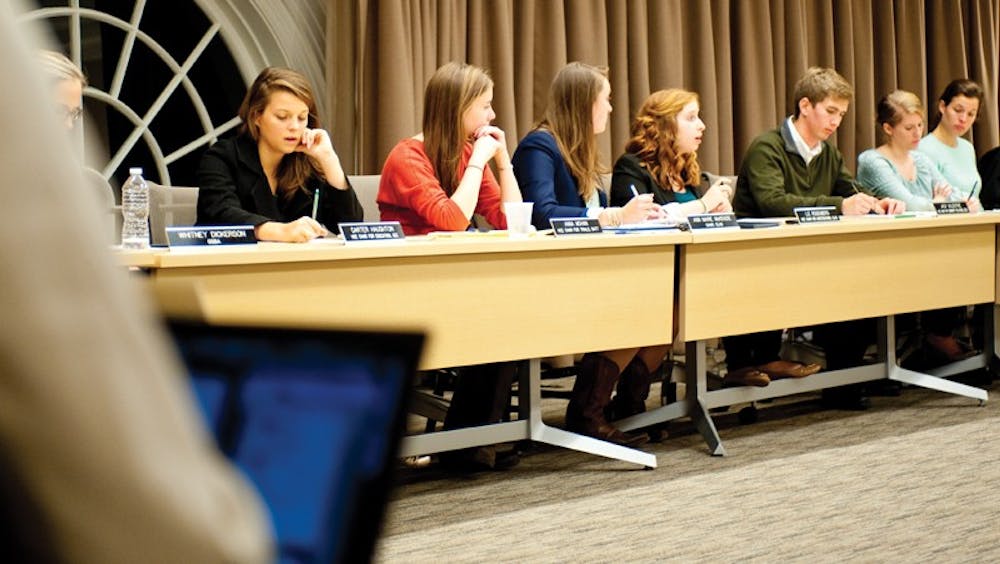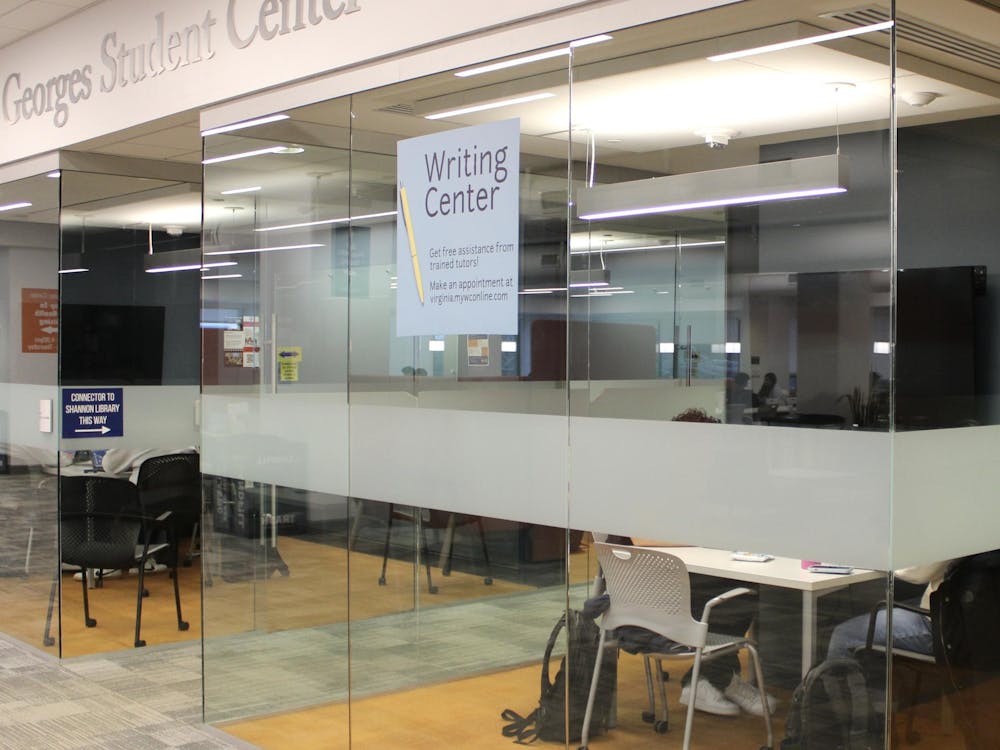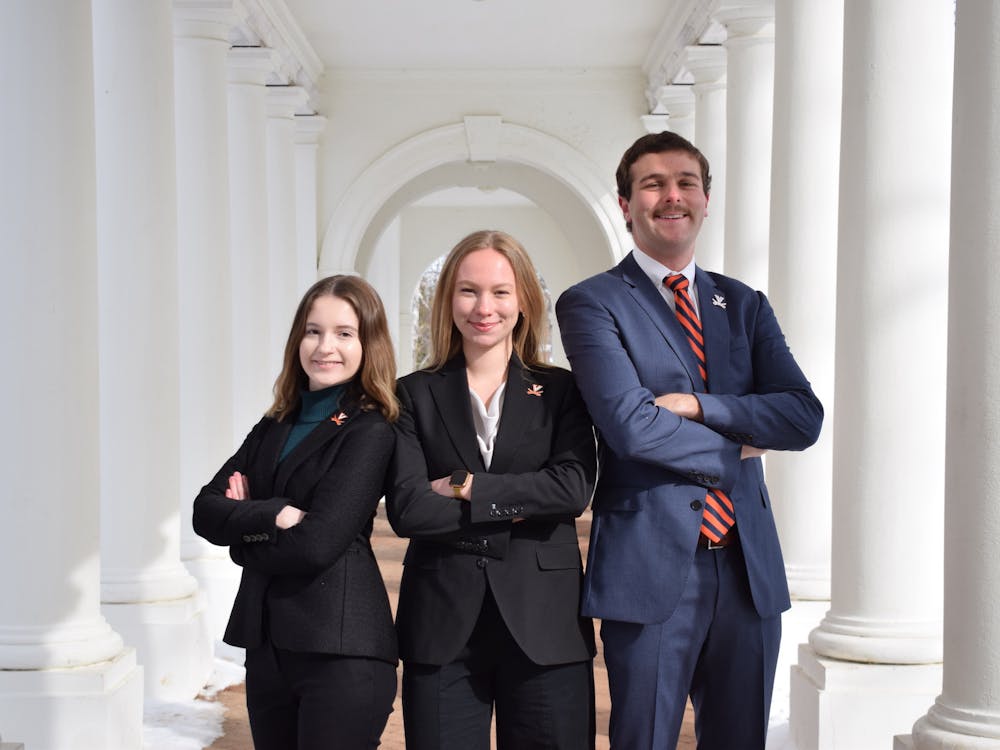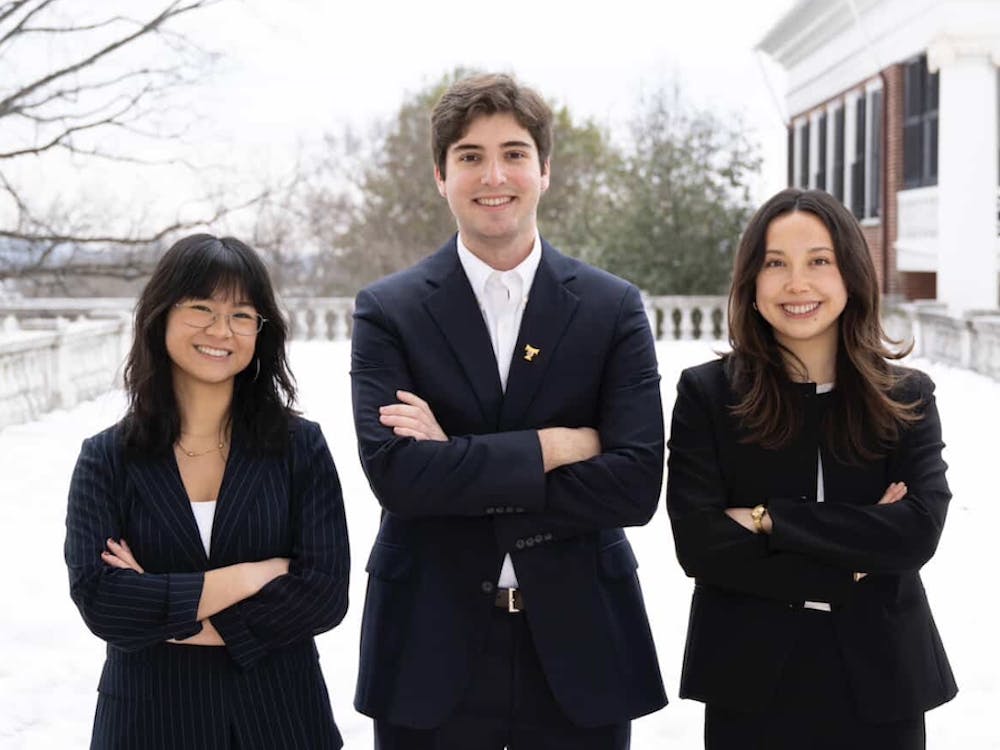The Honor Committee decided last night to continue to debate the merits of an alternative penalty to the single sanction. Tentatively, the Committee will vote next week on whether to continue considering an "informed retraction" or to abandon the idea altogether.
The informed retraction, as described in the first draft of legislation, would give an accused student the opportunity to avoid expulsion from the University by formally admitting to an honor offense and serving a suspension period. A student who files an informed retraction would also be able to avoid the trial process.
Last night's discussion was focused on the fundamental aspects of the legislation, rather than the problems with specific clauses.
Chair Ann Marie McKenzie began the discussion by explaining why members were involved in the efforts to write the legislation.
McKenzie pointed out that since last January, there have been only about 30 honor cases despite the fact that there are more than 16,000 students at the University.
"That to me says there is some sort of disconnect with what we do up here on the fourth floor and what's going on in the larger community," McKenzie said. She added that the policy of single sanction was instated when the student population was only 3,000 people and the "community of trust" could maintain the penalty "at a much more productive rate than we can do now."
Vice Chair for Investigations Liz Rosenburg reminded the members of the Committee that they are "representing a constituency that voted [them] into office." She said the Committee should remember its obligations to the community. "We need to seriously think about going out into the community and talking about whether or not the student body wants this," she said.
Law Rep. Barlow Mann said he is working on the alternative because the current system is "over-inclusive in the sense that it kicks out people who might be actually dedicated to the system."
He said the "noble thing to try and do" is to construct a system in which a person who makes a mistake one time could be pardoned. "We are working to try and eliminate this over inclusiveness [of the current system]," Mann said.
Vice Chair for Education Carter Haughton said informed retraction would provide an opportunity for students who were uninformed about the honor code to learn from their mistakes. The way the current system stands, "we don't have a way of helping those students who did not have the opportunity to be properly educated," she said.
Haughton added that "it's impossible for us to reach out to every single student that comes here ... [For some] the concept of honor is something they don't fully understand."
Other members of the Committee expressed concerns about whether this proposal is the right step for the Committee to take.
Jack Valentine, vice chair for community relations, discouraged the Committee from adding another layer of complexity to an already complex system.
"With what I've heard, it sounds like there's enough of a debate to be had over single sanction," he said. "That's where we should be focusing our time instead of this. We're not ready to put this in front of students and add complexity."
Haughton responded that the informed retraction wouldn't add a layer of complexity to education because education is mainly "focused on the preventative side." She said educators rarely discuss the options that a student has after a report is filed.
"People want honor to have a more active role in the community," College Rep. Ellie Perkins said. "We need to discuss alternatives to the single sanction. We are representatives from communities that have expressed dissatisfaction. We have an obligation to discuss what those alternatives are."
Perkins also reminded members that the Committee should not rush to settle the debate about the informed retraction possibility, as it may be detrimental to think of one committee as independent from its predecessors or successors. She added that discussions about alternatives to the single sanction policy do not have to be limited to the current Committee term.
"We cannot only be thinking about our committee and what we're thinking about this year," Perkins said. "We [must] be thinking about a trajectory of the system in the future"







